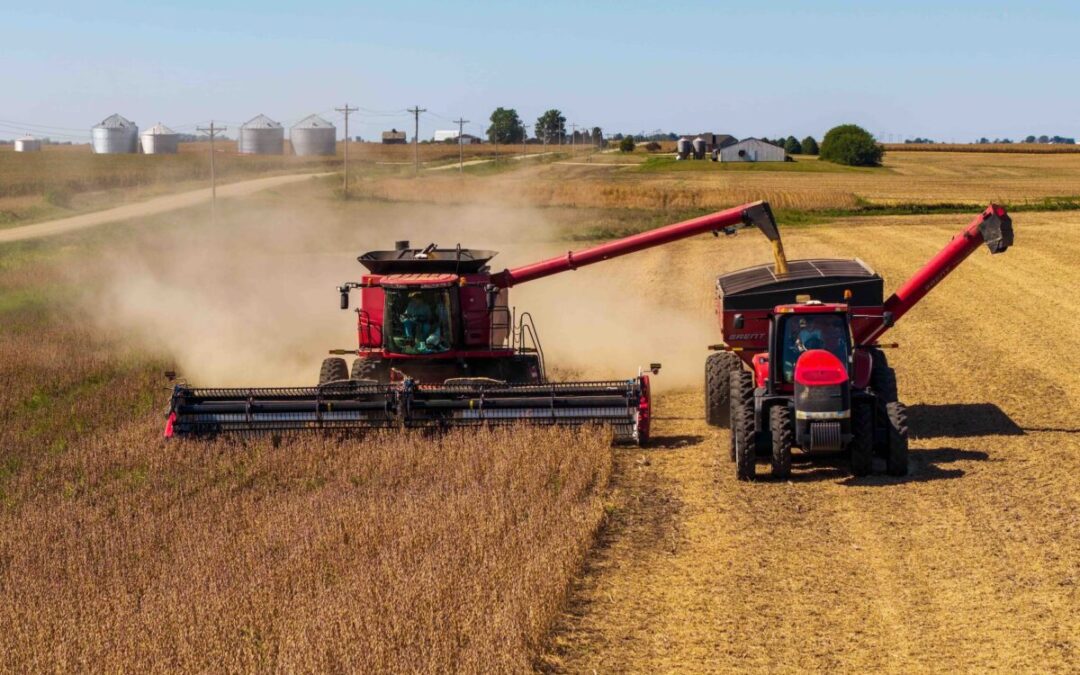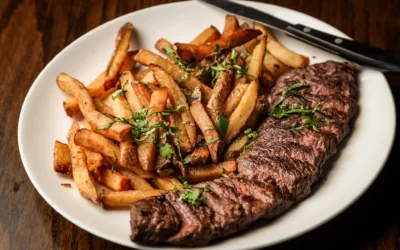
The Farm Bill—reviewed and renewed every five years by Congress—is the main funder of rural economic development, which helps local governments, small businesses, and families in Wisconsin.
From helping replace fire engines to extending the reach of high-speed internet, the US Department of Agriculture’s (USDA) Rural Development Office brings benefits to small communities across rural America—evidenced by a growing list of projects that help Wisconsinites with things like clean water, affordable housing, and improved healthcare facilities.
Funding for future projects could be at risk, however, as Republicans controlling the US House of Representatives are demanding substantial cuts in return for not shutting down the government and causing even more harm.
The agency’s Rural Development office describes itself as “the lead federal agency helping rural communities grow and prosper,” using grants, loans, and technical assistance to improve infrastructure, job growth, rural housing, and other community needs.
“Rural Development has over 70 different programs that are available to individual businesses as well as local government in rural Wisconsin,” said Julie Lassa, a former state senator now Wisconsin state director for the agency.
“Our programs range from help with purchasing single-family homes to multi-family rental assistance programs,” Lassa told UpNorthNews. “We also have business development, job creation programs, and our community programs, which help local governments be able to replace fire trucks and police vehicles, renovate town halls and libraries, or put up a new fire station.”
Rural Development also has a telecommunications arm for expanding broadband service as well as assistance for rural electric cooperatives, where the agency got its start.
“Our history at Rural Development stretches all the way back to FDR and the New Deal, where it brought electricity out to rural parts of the United States,” Lassa said. “It’s really exciting to see how this small but mighty department within USDA has grown because most people think we either monitor corn prices or inspect meat—but we do so much more.”
Recent USDA Rural Development actions in Wisconsin have included:
- A $1 million Emergency Rural Health Care Grant to replace the Upland Hills Health clinic in Mineral Point, which is housed in a building constructed in 1880.
- $7.1 million in funding assistance for constructing a new wastewater treatment facility in Osseo.
- A loan of $28 million to the Reedsburg Utility Commission to provide affordable high-speed internet to nearly 10,000 people in southwest Wisconsin.
- A $54,800 Rural Business Development Grant for the Chippewa County Economic Development Corporation to provide technical assistance to small businesses.
- A grant of $11,672 for a grain farmer in Trempealeau to install a 12-kW solar array that will save an estimated $1,545 a year and replace 100%of his company’s energy use per year.
Like many other federal programs, however, USDA funding relies on a federal budget and a separate Farm Bill, rewritten every five years—and both are already late and subject to intense partisan debate.
Newly-elected House Speaker Mike Johnson (R-Louisiana) said during his first day on the job that he would like to see a new Farm Bill voted on in December. But progress on a Farm Bill—which authorizes everything from farm subsidies and conservation programs to school lunches and food assistance—has been made more challenging by recent demands by Republicans to cut tens of billions of dollars from conservation and climate programs, nutrition assistance programs, and other areas that could include economic development.
There was immediate pushback from Democrats on the House Agriculture Committee and in the Democratic-controlled Senate.
Whether the now-expired Farm Bill is extended or a new one is eventually passed, Rural Development will continue to identify ways to not only improve local life in rural communities but to connect rural communities to people, products, and services needed by residents and businesses in Wisconsin’s smaller hometowns.
“It is so needed in today’s digital world where students are using the Internet, especially during the pandemic, to participate in virtual learning,” Lassa said about connecting more of rural America to high-speed internet. “We have telemedicine that’s taking place so residents don’t have to leave their homes to attend a medical appointment. And for businesses, the world is open for opportunity when they have a solid high speed Internet connection. So they could be doing business just across the community or somewhere on the other side of the world.”
To learn more about USDA Rural Development in Wisconsin, their web address is www.rd.usda.gov/wi.
Support Our Cause
Thank you for taking the time to read our work. Before you go, we hope you'll consider supporting our values-driven journalism, which has always strived to make clear what's really at stake for Wisconsinites and our future.
Since day one, our goal here at UpNorthNews has always been to empower people across the state with fact-based news and information. We believe that when people are armed with knowledge about what's happening in their local, state, and federal governments—including who is working on their behalf and who is actively trying to block efforts aimed at improving the daily lives of Wisconsin families—they will be inspired to become civically engaged.


Retired veterinarian uses pasture for seasonally grazing dairy heifers and extra income
BEAR CREEK, Wisconsin – Earlier this year Jeff and Alex Wepner were looking for a place where their dairy heifers could grow and develop during the...

China has resumed U.S. soybean imports. It might not be enough for Wisconsin farmers
After a tense months-long standoff over tariffs, China has agreed to resume U.S. soybean imports in exchange for the U.S. easing up its tariff...

China is boycotting American soybeans. Wisconsin farmers will pay the price for it, trade group says
As China and the U.S. remain locked in a tense standoff over tariffs, Wisconsin soybean farmers have found themselves in the crossfire of the...

In Portage County, residents fight for a say in local government
One of my favorite photos of my friend Jason Dunkin is a selfie he took where he’s grinning ear to ear. He’s sitting across from his local city...





